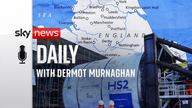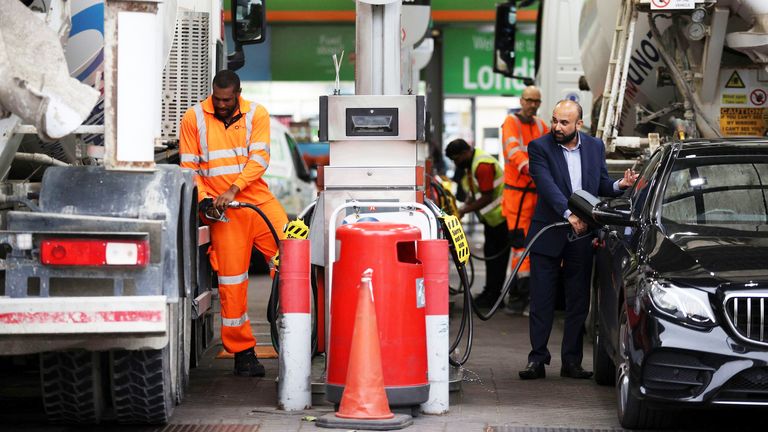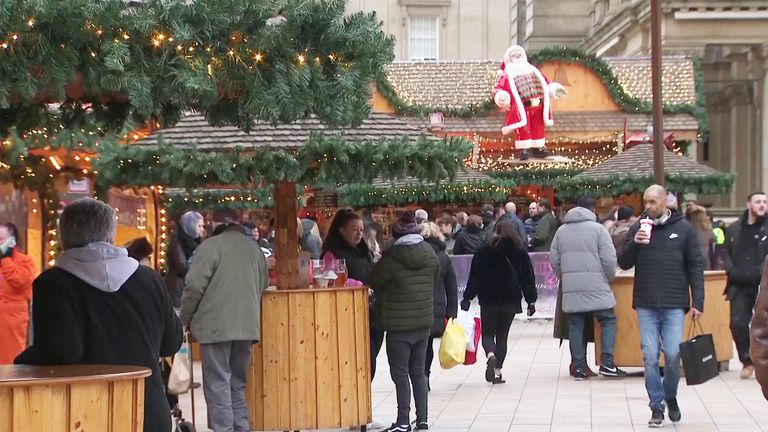Inflation is back – and all eyes are on the Bank of England ahead of its next decision
There has been a strange pattern in recent months.
Each month economists from the private sector to the Bank of England say they expect inflation to rise and pretty much every month inflation rises even higher than those expectations.
So it was again this month: economists thought the Consumer Price Index rate would rise from 4.2% to 4.7% in November.
Instead it leapt to 5.1%.
It is now at the highest level in a decade.
Indeed, the Retail Price Index rate, which is the inflation measure the Bank’s monetary policy committee used to target some years ago, is now 7.1% – the highest level in three decades.
Even adjusting for the fact that everyone was expecting inflation – a measure of how fast prices around the economy are increasing each year – to go up, these are still eye-watering figures.
The main factors are transport costs (remember how fast fuel prices have been going up), second-hand cars (the semiconductor shortage means fewer new cars are available) and clothing.
Underlying everything is high energy prices, and given gas prices have jumped back up to near-record highs, it’s unclear quite when this price pressure abates.
Naturally all eyes now turn to the Bank of England, which announces its latest interest rate decision tomorrow.
In any normal time one would expect the Bank to raise interest rates.
After all, its job is to try to keep CPI inflation as close as possible to 2% and its main tool to do so is the interest rate.
All else equal, higher interest rates will mean lower inflation.
And up until a few weeks ago most economists had indeed expected the Bank to raise borrowing costs from their record low of 0.1% tomorrow to 0.25%.
Not a big increase, but a start.
But then came Omicron.
And with the economy potentially expected to contract in the face of the new variant – or rather people’s behaviour in the face of it and the tightened restrictions introduced by the government – it’s no longer clear that the Bank won’t sit on its hands once again.
The decision, however, just became a lot spicier.
Even with the new variant, no central bank can afford to be relaxed when prices are rising as quickly as this.
Either way, inflation is back.
For many years people assumed that prices were now almost permanently under control, that they had been tamed by independent central banks, that the double-digit price increases of the 1970s were a thing of the past.
Now, with inflation rising so sharply, no one is sure any more.
The big question is whether this inflation proves “transitory”, passing very quickly and falling back down again in late 2022.
That’s what the Bank’s economists had been insisting up until recently.
But the Bank didn’t foresee these increases.
Naturally some are wondering whether they’ve got this wrong too.




